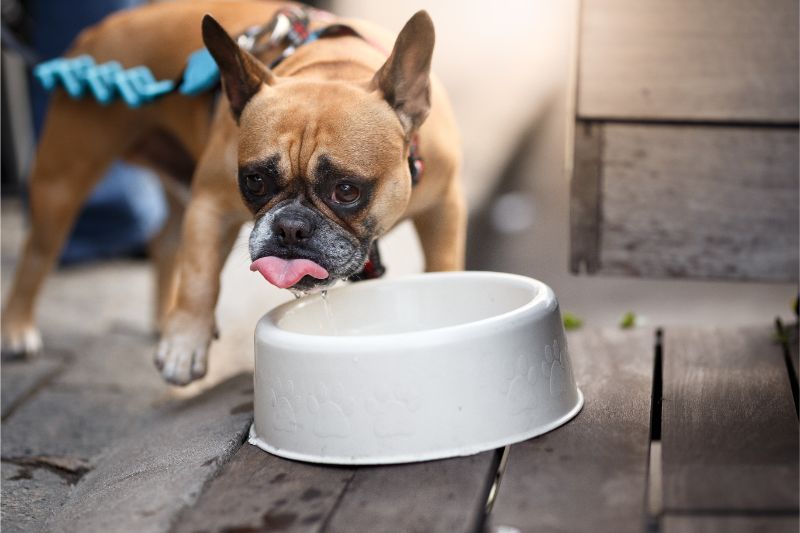
Balanced nutrition is not the only important part of keeping your pet healthy. Water is also vital to your pet’s health and is the main component of healthy, living cells in the body. Without it, your pet’s body will not be able to function properly and he may even become dehydrated. You need to provide enough water for your pet daily, but what else should you be aware of?
July is Pet Dehydration Awareness month, so we thought it may be time to explore the importance of water for pets.
What Does Water Do For Pets?
The purpose of water for pets is to carry important nutrients into and out of the cells of the body, aiding in digestion and the absorption of nutrients. It also regulates body temperature, lubricates joints, improves cognitive function, and cushions the brain and spinal cord. Every important bodily function requires water.
When we don’t get enough water, pets and people don’t function well. We feel groggy, lightheaded, and uncoordinated. Excessive loss of water, beyond what the body has taken in, is referred to as dehydration. When dehydrated, the body draws water out of the cells, resulting in muscle dysfunction and electrolyte imbalance. Organ failure and death can follow if dehydration is not treated immediately.
Signs of Pet Dehydration
Pet dehydration is common. Older or sick pets, cats, and short faced (brachycephalic) breeds are particularly susceptible. Watch for:
- Moving more slowly than normal
- Tiredness
- Loss of appetite
- Sunken eyes
- Panting
- Dry nose and gums
When pets don’t take in enough water, their skin becomes less elastic. To test for this, do a gentle skin pinch over the loose skin over your pet’s shoulder blades. If the skin bounces back quickly and easily, likely enough water is on board. But if your pet’s skin sinks back sluggishly to normal appearance, or remains tented for longer than a couple of seconds, your pet may be dehydrated.
How Does Dehydration Happen?
It may not seem like dehydration can happen easily, but in fact, it does. Pets lose water by normal reasons, like going to the bathroom, panting, and even breathing. They replenish this water by eating and drinking.
Dehydration can occur if your pet is not eating and drinking enough. Loss of appetite can be a sign of dehydration, so a vicious cycle can occur. Pets who exercise heavily or are exposed to hot, humid weather can become dehydrated easily. Heat stress, heat stroke and dehydration often go hand in hand.
Studies show that many cats exist in a state of chronic dehydration. This can affect their health in a variety of ways, including increased risk of developing diabetes and kidney and liver failure.
Simple Ways to Keep Your Pet Hydrated
Paying attention to your pet’s water intake is important all year round, and especially during the hottest months of the year. Here are some simple tips.
- Provide fresh, clean, clear drinking water each and every day
- Provide multiple water bowls in different locations throughout the house
- Invest in a drinking fountain for pets; cats especially like running water
- If your cat likes to drink from a dripping faucet, let her
- Add canned food to your pet’s diet, which contains more water than kibble
- Teach your dog to drink from a water bottle, or take collapsible water bowls in your car and on adventures
- Location matters! Sensitive cats need water bowls in low traffic areas
- Test different bowl types. Some cats have preferences for what type of bowl they will drink from
If your pet looks wobbly, is panting excessively, seems disoriented, has pale gums, or is not drinking enough water, it’s time for an immediate visit to the veterinarian.
When dehydrated, the body needs IV fluids to replenish needed water and electrolytes quickly in order to avoid organ failure. And we need to assess the level of dehydration to determine the best course of treatment to restore your pet to normal.
With a little awareness and some extra preparation, you can ensure your pets are well hydrated. Simple habits can help us to make water a stable part of our pet’s daily life. Each time your reach for your own water bottle, think of your pet’s water needs, too.
Give your team at True Care Veterinary Hospital a call with any questions or concerns.

